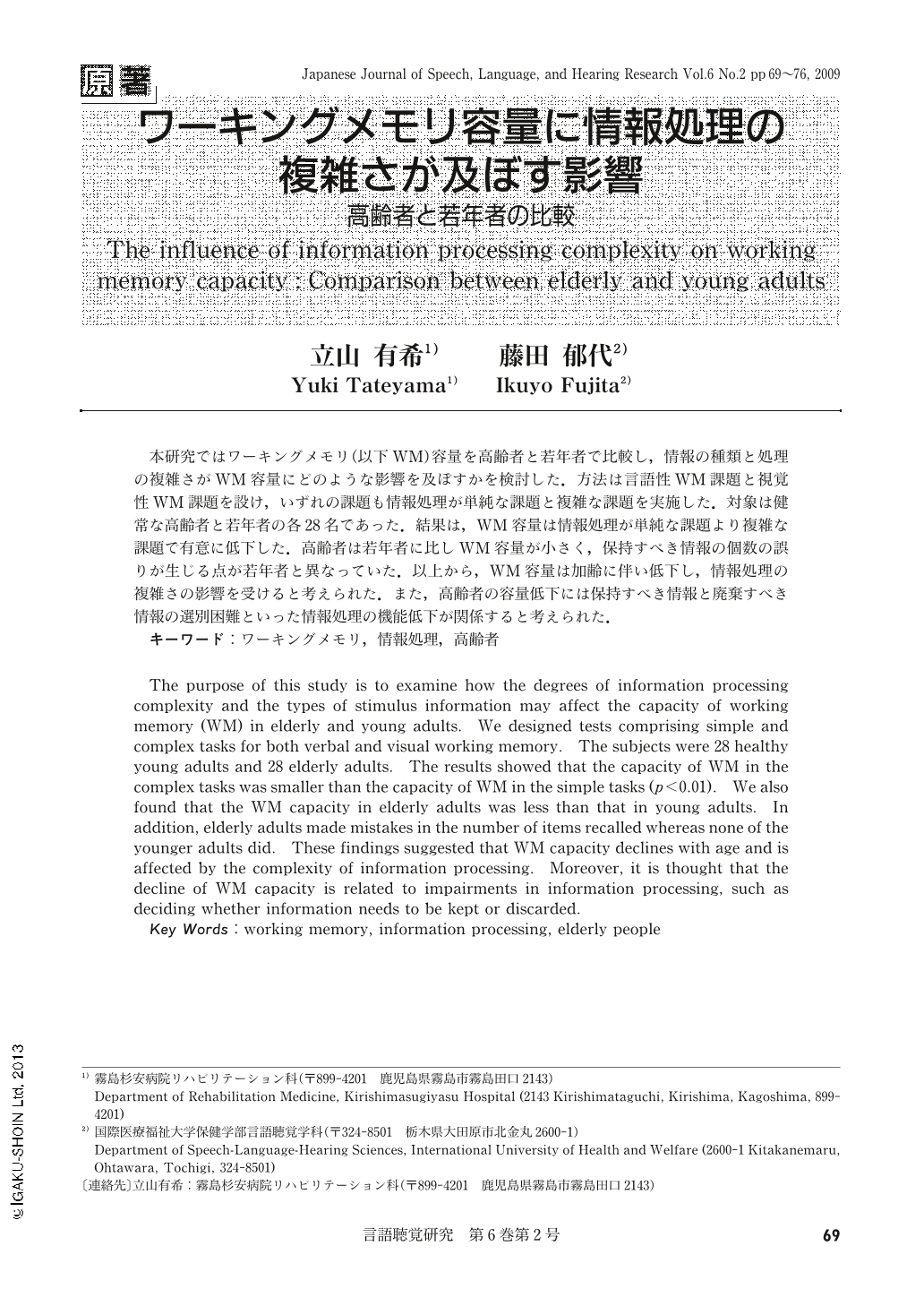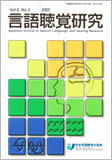Japanese
English
- 有料閲覧
- Abstract 文献概要
- 1ページ目 Look Inside
- 参考文献 Reference
本研究ではワーキングメモリ(以下WM)容量を高齢者と若年者で比較し,情報の種類と処理の複雑さがWM容量にどのような影響を及ぼすかを検討した.方法は言語性WM課題と視覚性WM課題を設け,いずれの課題も情報処理が単純な課題と複雑な課題を実施した.対象は健常な高齢者と若年者の各28名であった.結果は,WM容量は情報処理が単純な課題より複雑な課題で有意に低下した.高齢者は若年者に比しWM容量が小さく,保持すべき情報の個数の誤りが生じる点が若年者と異なっていた.以上から,WM容量は加齢に伴い低下し,情報処理の複雑さの影響を受けると考えられた.また,高齢者の容量低下には保持すべき情報と廃棄すべき情報の選別困難といった情報処理の機能低下が関係すると考えられた.
The purpose of this study is to examine how the degrees of information processing complexity and the types of stimulus information may affect the capacity of working memory (WM) in elderly and young adults. We designed tests comprising simple and complex tasks for both verbal and visual working memory. The subjects were 28 healthy young adults and 28 elderly adults. The results showed that the capacity of WM in the complex tasks was smaller than the capacity of WM in the simple tasks (p<0.01). We also found that the WM capacity in elderly adults was less than that in young adults. In addition, elderly adults made mistakes in the number of items recalled whereas none of the younger adults did. These findings suggested that WM capacity declines with age and is affected by the complexity of information processing. Moreover, it is thought that the decline of WM capacity is related to impairments in information processing, such as deciding whether information needs to be kept or discarded.

Copyright © 2009, Japanese Association of Speech-Language-Hearing Therapists. All rights reserved.


